Neurodisability and Rehabilitation
To prevent or minimise disabilities, and where possible, to improve health, well-being, and quality of life for children with disabilities and their families.
Approximately 7.6% of all Australian children have a disability. These disabilities include intellectual disability, cerebral palsy, spina bifida, acquired brain injury, visual or hearing impairment, autism spectrum disorder, and rare genetic conditions such as tuberous sclerosis.
The Neurodisability and Rehabilitation Group at Murdoch Children’s Research Institute focuses on helping these children and their families by gaining an improved understanding of the causes of childhood disabilities, optimising interventions, and implementing evidence-based interventions into care and support.
The goal is to prevent or minimise disabilities where possible, and to improve health, well-being, and quality of life for children with disabilities and their families.
Our team has a strong track record of research in disability and collaborates nationally and internationally. We work closely with the Department of Neurodevelopment and Disability at the Royal Children’s Hospital, the Victorian Paediatric Rehabilitation Service, and the Department of Paediatrics at the University of Melbourne.
Neurodisability and Rehabilitation currently includes approximately 80 paid and honorary staff.
Our five main research streams
- Cerebral palsy and physical disability
- Autism & intellectual disability
- Rehabilitation
- Genetics of neurodevelopmental disability
- Psychiatry & behaviour
Cerebral palsy and physical disability
Through our program of cerebral palsy research, we aim to improve the way we understand cerebral palsy, detect, and manage it, and offer better support to children with a disability and their families.
We focused our clinical research on better approaches to preventing and detecting cerebral palsy early and on identifying effective interventions. Through a combination of clinical trials, systematic reviews, cohort studies, and cross-sectional studies we are working on improving the identification and management of movement disorders, pain, displaced hips, drooling, and other co-morbidities associated with cerebral palsy. We have a strong knowledge translation focus and our close links to clinical care ensure we take evidence up into clinical care and practice.
We are committed to studying outcomes for adolescents and young adults, through several projects, including our Centre of Research Excellence (“CP-Achieve”), that focus on identifying ways to improve social, cognitive and behavioural outcomes to enable young adults to live a healthy life. Some of this work also focuses on supporting the mental health of parents and carers of children with a disability.
Our group houses the Victorian Cerebral Palsy Register which collects information on people with cerebral palsy who were born or are living in Victoria. The register was established in 1986 and is now one of the largest cerebral palsy registers in the world. Using the Register, we conduct ongoing research describing, monitoring, and reporting on cerebral palsy in Victoria and Australia, including prevalence, type, topography, and severity of the movement disorder, comorbidities, neuroimaging patterns, and aetiological pathways, use of health services, and mortality.
Autism & intellectual disability
Our autism research aims to advance our understanding of autism and work towards improved personalised care, services, and support for children with autism.
We organised our research into two streams:
- discovery research to explore causal pathways of autism in specialised populations, and
- evaluating and improving the best care for children and adolescents with autism and their families.
Some of our research focuses on neurobiological pathways to autism in children who lose skills (“autistic regression”), in twins and in children with known genetic conditions, such as tuberous sclerosis. We are also looking at the impact of gender, mental health and other co-morbidities on child and adolescent outcomes, including participation and quality of life. We also continually collect and evaluate data aimed at understanding the incidence, prevalence, and diagnostic (including pathways to diagnosis) trends of autism in the community.
Ultimately, we aim to build our knowledge to enable personalised care and improve health, wellbeing, and quality of life for children with autism and their families.
Rehabilitation
Our rehabilitation research focuses on chronic fatigue syndrome, acquired brain injury, and technology.
Studies seek to understand chronic fatigue syndrome/ myalgic encephalomyelitis in children and adolescents, including brain structure and function, school functioning and clinical outcomes. In acquired brain injury, our research aims to improve evidence-informed rehabilitation for children with acquired brain injury and develop evidence-based clinical standards. We incorporate the perspective of children and parents and clinicians.
We are also excited about the benefits technology can bring to rehabilitation, and are adopting a general-purpose social robot for paediatric rehabilitation through in situ design.
Genetics of neurodevelopmental disability
Genetics of neurodisability research aims to improve the lives of children with neurodisability through improved diagnosis and treatment. Most neurodevelopmental disabilities have a genetic cause, yet even using the latest genetic testing technologies, a specific cause is identified in only 25% of affected children. Many new genetic tests are not routinely available. Knowing the genetic cause is a key entry point for treatment, prevention, and improving clinical care. Our research focuses on identifying genetic causes for a range of neurodevelopmental disabilities including intellectual disability, cerebral palsy, brain malformations, and autism.
We are also actively involved in the translation of new genomic testing technologies into clinical care.
Psychiatry & behaviour
Our research focuses on developing a better understanding of the pathophysiology and underlying causes of ADHD, irritability, conduct disorder, and depression using a range of approaches including Neuropsychopharmacology, neuroimaging, and genetics. We are developing personalised approaches to the treatment of child and adolescent mental health problems through the use and study of biomarkers, neurocognitive phenotypes, clinical trials, pharmacoepidemiology, and patient-reported outcomes.
We also aim to develop clinical pathways that facilitate the rapid transfer of research evidence into routine clinical practice.
More information
Group Leaders

Team Leaders


Group Members

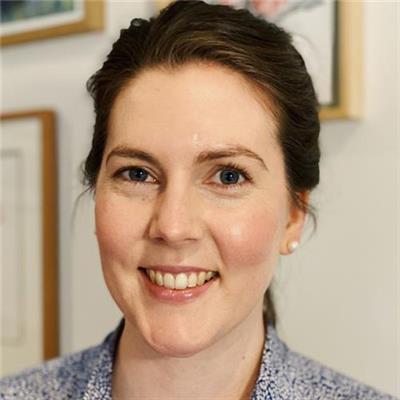







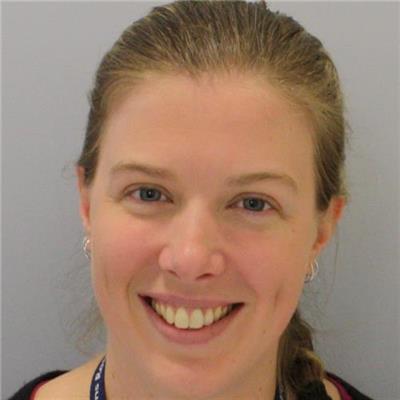

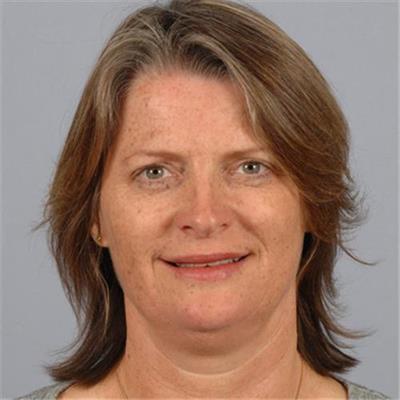
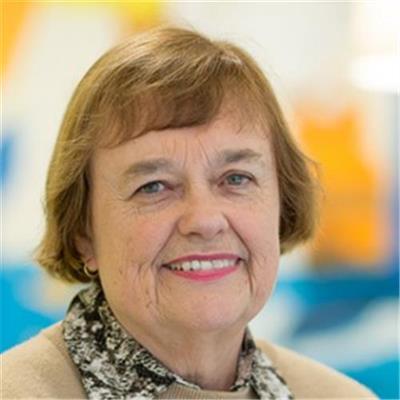


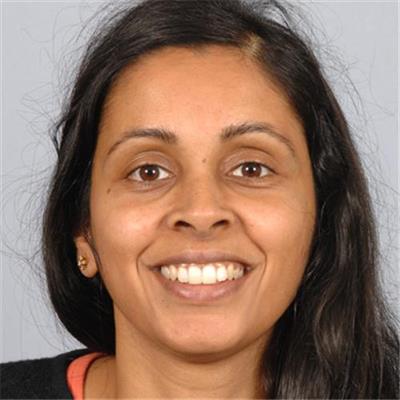



Our projects

Accelerated Gene Identification Program
Gene discovery program for rare genetic conditions, with a particular focus on neurogenetics and brain development.
Read more...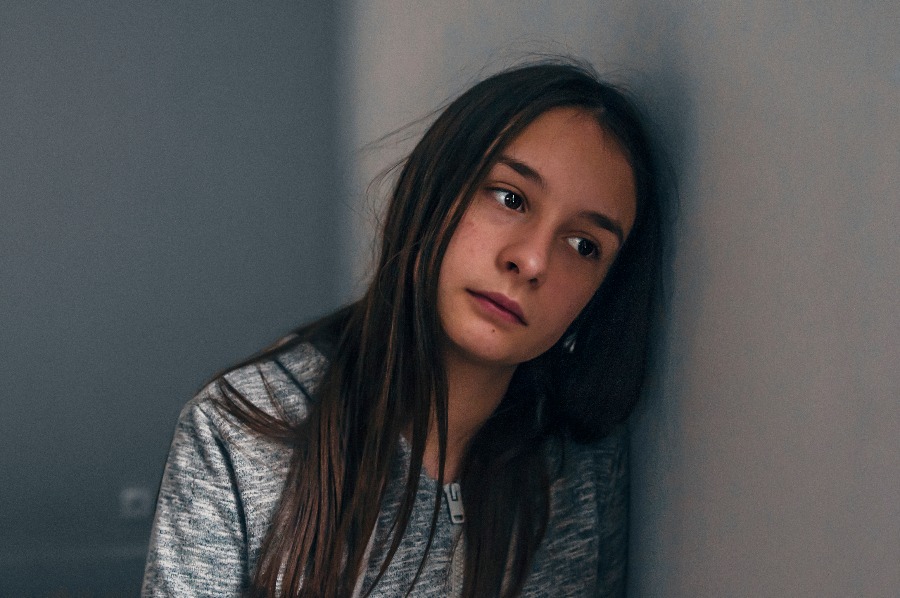
IRIS study
In the IRIS research study, we are looking to find out whether a medication in a research study might improve the social and communication challenges that autistic people might experience.
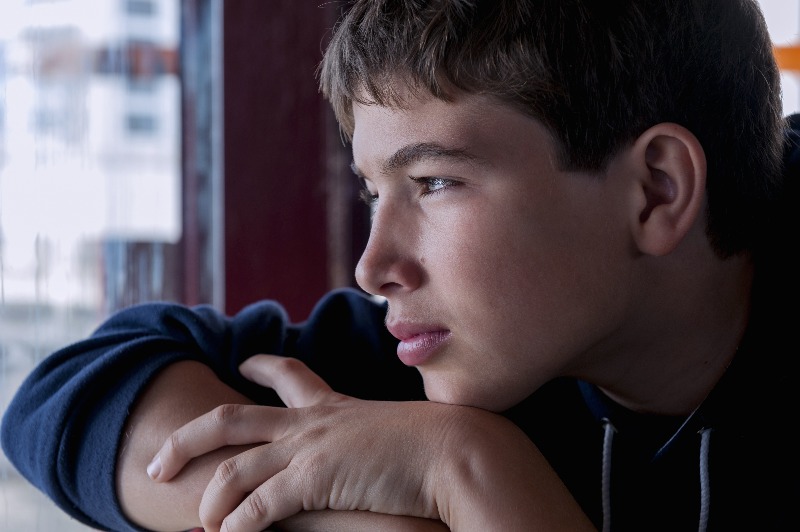
Penguin study
Do you notice irritable behaviours in your child? If yes, Murdoch Children's Research Institute invites you to join the Penguin study.

SPOT-ME Study – Chronic Fatigue Syndrome Research
This study is investigating the biological and cognitive effects of chronic fatigue syndrome in adolescents.
Read more...
Understanding clinical features of paediatric chronic fatigue syndrome
This study is complete. Aiming to improve the quality of life for children and adolescents with Chronic Fatigue Syndrome (CFS).
Read more...
Understanding the causes of loss of skills in autism
The Loss of Skills study will collect high-quality information about children with autism or social and communication impairments consistent with autism who have a substantial loss of skills.
Read more...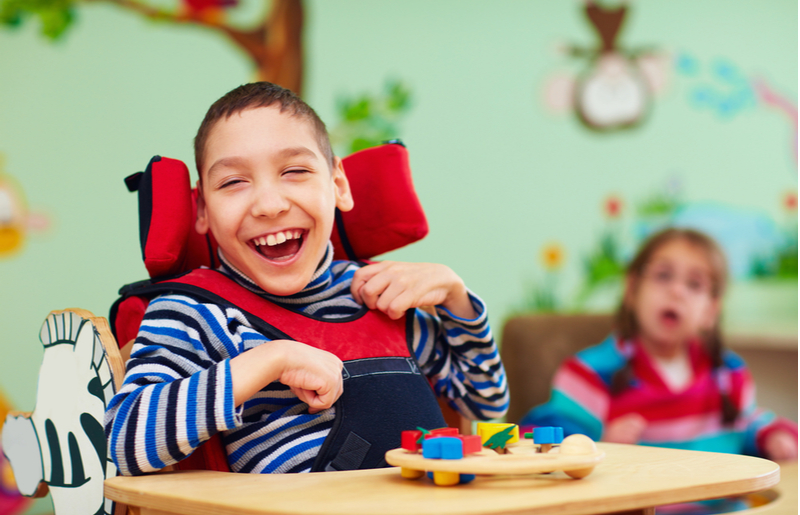
Victorian Cerebral Palsy Register (VCPR)
The Victorian Cerebral Palsy Register (VCPR) is a long-running population-based register and study of cerebral palsy in Victoria. We collect health information on people with cerebral palsy who were born, had lived, or had received health services in Victoria from 1970 onwards.
Read more...Improving understanding of MRI patterns, structure-function relationships, and causal pathways in cerebral palsy
This program has focussed on classifying patterns of injury on brain MRI scans and relating these MRI findings to the type of cerebral palsy and the child’s level of function. This research has led to the development of a new classification of causal pathways in cerebral palsy and a body of research examining the importance of antecedent factors to each pathway.
Exploring the use of stem cells in cerebral palsy
This project looks at options for testing cord blood stem cells as a therapy for cerebral palsy in Australia. As part of national collaboration, a small clinical trial focussing on the safety of single-dose intravenous cord blood cell infusion is in progress for children with cerebral palsy who have their sibling’s cord blood in storage.
Dyskinesia in children with cerebral palsy
This national collaborative program of research has three streams: identification and measurement of dyskinesia, interventions, and the lived experience. The program has research activities within each stream, led by a number of key clinician-researchers from around Australia.
Pain in children with cerebral palsy and other developmental disorders
This national program of research focuses on understanding the pain experience of children with cerebral palsy and developing accurate and innovative methods to identify and measure pain in this population of children. This will lead to studies of more effective pain management for children with developmental disabilities.
Preventing hip dislocation for young people with cerebral palsy
Hip dislocation is a common and serious problem for children with cerebral palsy, affecting at least one-third of children with cerebral palsy, especially those with more difficulty walking. Hip dislocation causes severe pain and reduced function, but its impact can be lessened or prevented with timely monitoring and intervention.
Working with stakeholders from across Victoria, the project aims to ensure that every child in Victoria with cerebral palsy will have fair access to hip surveillance by developing and establishing consistent processes.
Gene discovery in cerebral palsy
Although cerebral palsy has several causes, no cause is known for over 10% of individuals and it is possible that there is an unidentified genetic contribution. Within the International Cerebral Palsy Genomics Consortium, we are assisting in a study looking for genetic associations with cerebral palsy.
This study aims to collect DNA samples from patients with cerebral palsy where there is no known cause, to determine how often specific genetic changes are found and whether it is possible to discover new genes that may be associated with cerebral palsy.
The Prophylactic Antibiotics to Prevent Chest Infections In Children With Neurological Impairment Trial (PARROT)
Many children with neurological impairments struggle with severe chest infections and frequently spend time in hospital and on high-dose antibiotics.
The PARROT trial aims to find out whether children with neurological impairments do better when on constant preventative antibiotics. This is a joint United Kingdom and Australia multicentre randomised trial that will take place over five years at The Royal Children’s Hospital along with other sites in Australia.
The trial is looking for children aged three to 17 years old with neurological impairment and persistent respiratory symptoms to take part in the trial.
The infant Wrist Hand Orthosis Trial (iWHOT)
Children with cerebral palsy are often prescribed hand orthoses (“splints”) to maintain hand movements and help them develop skills, such as holding cutlery or toys.
However, orthoses are challenging for children to wear, time-consuming for therapists to make and for families to manage, and of uncertain benefit for the child. Our multicentre trial aims to evaluate whether orthoses actually help children with cerebral palsy to maintain hand movements and use their hands. The trial is recruiting children aged less than three years with, or at risk of cerebral palsy.
Understanding the impact of autism in the community
We are exploring autism incidence, prevalence, and diagnostic trends in Australia using health, welfare, education, and research data, in order to understand factors that may influence autism prevalence in this part of the world.
This includes utilising data from specific regions in Australia such as the Barwon and Melton areas of Victoria (through the Victorian Collaborative Autism Study and Melton Developmental Differences Database), as well as Australia-wide data derived from the Longitudinal Study of Australian Children and government health, welfare and education data.
Towards treatment of intellectual disability caused by errors in the chromatin machinery
Intellectual disability occurs in two to three per cent of newborns, for a variety of reasons, including environmental factors, chromosomal abnormalities, and mutations in single genes. Recently, it has been recognised that intellectual disability resulting from inborn errors in the chromatin machinery may be treatable.
Over 40 genetic syndromes have so far been identified in this category. This project will focus on mutations in chromatin factors and chromatin-modifying enzymes found in patients with intellectual disability because chromatin changes are reversible, and these classes of molecules are well-established as therapeutic targets in other disorders.
Moderate to severe acquired brain injury
Many children with acquired brain injury (ABI) experience long-term physical, cognitive, academic, emotional-behavioural, and occupational difficulties that require input from an interdisciplinary team.
We aim to improve evidence-informed care in paediatric acquired brain injury rehabilitation by systematically identifying evidence-practice gaps and implementing tailored interventions to address these gaps.
Areas of particular focus include family-centred care, peer support, goal setting, school reintegration, and fatigue assessment and management. We partner with family members and young people with lived experience of childhood acquired brain injury and the interdisciplinary clinical team.
Technology
Everyday technology, including smartphones, touchpads, smartwatches, and the connected home, has the potential to dramatically improve the lives of those with disability.
Our experience talking with families is that many do not use the accessibility features freely available on their devices, and many are not aware of the potential benefits of using those features.
We aim to identify what benefits are available from everyday technology, how best to configure devices, assess barriers to implementation, and develop training programs both for staff and families.
Enabling Visions And Growing Expectations (ENVISAGE)
Our Australia/Canada team created and is delivering and evaluating an ‘ENVISAGE’ program for families, to empower parents of children with a neurodevelopmental condition, enhance family well-being, and mitigate psychosocial morbidities to which these families are prone.
The 5-week online program, co-designed with parents, covers five themes:
- A holistic approach to health, based on the ICF and our ‘F-words’ adaptation (function, family, fun, friendships, fitness, future).
- Child and family development.
- Challenges and joys of parenting in childhood disability.
- Balancing caregiving with self-care.
- Skills to connect, communicate, and collaborate.
The project is currently recruiting parents/caregivers of children with a neuro-developmental disability aged under six years.
Mental health and participation in (re)habilitation for children and youth with disabilities
Mental health problems and participation restrictions are frequently reported for children with disabilities. There is little information on the long-term relationships between mental health and participation in the presence of child-onset disability, or about how mental health is affected by (re)habilitation services provided for these children and families.
This collaborative program of research will investigate relations between participation and factors affecting participation, with a focus on mental health and services provided to children with disabilities who have mental health problems.
Implementation of an evidence-based intervention (PREP) in an Australian context with youth with complex disability and evaluation of involvement of consumer research partners (CEval)
This consumer-researcher collaborative study includes two projects:
- A translational study to identify the feasibility and applicability of the Pathways and Resources for Engagement and Participation (PREP) intervention for young adults with complex disability when translated to an Australian context.
- An evaluation of the experience and impact of involving consumers as co-researchers (Consumer Evaluation (CEval) project).
PREP has demonstrated effectiveness in younger populations in Canada to improve participation in community recreation of adolescents with disability. We are working with the developer of PREP (Anaby) to customize and evaluate the feasibility and applicability of using PREP to improve participation in community activities of young adults in Melbourne.
Consumer partnership in research is best practice, and we are involving consumers as co-researchers and on the Research Advisory Partners (RAP) in the PREP project.
Other projects
- Longitudinal follow-up of changes in brain structure and function and its prediction of functional and clinical outcomes of adolescents with Chronic Fatigue Syndrome/Myalgic Encephalomyelitis
- Microstructural and metabolic brain changes in paediatric Chronic Fatigue Syndrome/Myalgic Encephalomyelitis using diffusion-weighted magnetic resonance imaging and magnetic resonance spectroscopy
- Biobanks, Big Data, and Myalgic Encephalomyelitis: Establishing a global registry and biobank in Australia to drive the discovery of blood biomarkers
Funding
- Bioautism
- Canadian Institutes for Health Research
- Cerebral Palsy Alliance
- DoBees and Trailblazers auxiliaries
- Endeavour Foundation
- Equity Trustees and the Percy and Ruby Haddy Foundation
- Financial Markets Foundation for Children
- Housing, Community Services and Indigenous Affairs
- Ian Potter Foundation
- Lorenzo and Pamela Galli Charitable Trust
- Marian & E.H. Flack Trust
- Mason Foundation
- Medical Research Futures Fund
- Melbourne Academic Centre for Health
- Melbourne Disability Institute
- Murdoch Children's Research Institute
- National Disability Insurance Scheme, Department of Families
- National Health and Medical Research Council
- National Institutes of Health, USA
- Perpetual Philanthropic Services
- RCH Pied Pipers
- Scobie & Claire Mackinnon Trust
- State Trustees
- Swedish Research Council
- The Royal Children’s Hospital Foundation
- The University of Melbourne
- Victorian Department of Health
- Victorian Medical Insurance Agency
- Victorian Stroke Clinical Network
- William Collie Bequest
Collaborations
- Australian Catholic University
- Australian Cerebral Palsy Register group
- Bloorview Research Institute
- CanChild Centre for Childhood Disability Research
- Cerebral Palsy Alliance
- Children's Hospital at Westmead
- CHILD Research Group, Jonkoping University
- CPL – Choice Passion Life, QLD
- Deakin University
- Djerriwarrh Health Services
- Griffith University
- LaTrobe University
- Menzies Health Institute
- Menzies School of Health Research
- Monash Children’s Hospital
- Monash Health
- Novita, South Australia
- Perth Children’s Hospital
- Queensland Children’s Hospital
- Queensland Health
- St Vincent’s Hospital, Melbourne
- Surveillance of Cerebral Palsy in Europe network
- The Sydney Children’s Hospital Network
- UMC Utrecht
- University of Alberta
- University of Chicago
- University of Liverpool
- University of Notre-Dame
- University of NSW
- University of Sydney
- University of Western Australia
- Yooralla
Featured publications
- Australian clinical consensus guideline for the subacute rehabilitation of childhood stroke.
Int J Stroke. DOI:10.1177/1747493020941279.
Knight S, Greenham M*, Rodda J, Scheinberg A, Anderson V, Fahey MC, Mackay MT and the Victorian Subacute Childhood Stroke Advisory Group (2020). *Joint lead author Impact:
First Australian clinical practice guidelines for the subacute rehabilitation for childhood stroke. This involved engagement of a national and international multidisciplinary team of rehabilitation professionals and people with lived experience. - Participation - both a means and an end. A conceptual analysis of processes and outcomes in childhood disability.
Developmental Medicine & Child Neurology, 59(1), 16-25. DOI: 10.1111/dmcn.13237Scopus citations = 159; Google scholar = 269.
Imms, C., Granlund, M., Wilson, P.H., Steenbergen, B., Rosenbaum, P., & Gordon, A. (2017).
Impact: Culmination of 10 years research about participation, this paper provided much need conceptual clarity. Impact seen in the broad application across (1) fields of health, rehabilitation, education, early childhood, recreation, arts, (2) conditions: NDD, cancer, prematurity, stroke, chronic health, (3) lifespan from infancy to aged care, and (4) internationally. - ADHD in children and young people: prevalence, care pathways, and service provision.
Lancet Psychiatry. 2018;5(2):175-86. FWCI 9.33. Sayal K, Prasad V, Daley D, Ford, T & Coghill, D.
Impact: Commissioned review and position piece on the issues relating to recognition, diagnosis and treatment of ADHD and in particular the differences between the USA and rest of the world. - Pathogenic Variants in GPC4 Cause Keipert Syndrome.
Am J Hum Genet. 2019 May 2;104(5):914-924.
Amor DJ, Stephenson SEM, Mustapha M, Mensah MA, Ockeloen CW, Lee WS, Tankard RM, Phelan DG, Shinawi M, de Brouwer APM, Pfundt R, Dowling C, Toler TL, Sutton VR, Agolini E, Rinelli M, Capolino R, Martinelli D, Zampino G, Dumić M, Reardon W, Shaw-Smith C, Leventer RJ, Delatycki MB, Kleefstra T, Mundlos S, Mortier G, Bahlo M, Allen NJ, Lockhart PJ. - Mutations disrupting neuritogenesis genes confer risk for cerebral palsy.
Nat Genet. 2020 Oct;52(10):1046-1056.
Jin SC, Lewis SA, Bakhtiari S, Zeng X, Sierant MC, Shetty S, Nordlie SM, Elie A, Corbett MA, Norton BY, van Eyk CL, Haider S, Guida BS, Magee H, Liu J, Pastore S, Vincent JB, Brunstrom-Hernandez J, Papavasileiou A, Fahey MC, Berry JG, Harper K, Zhou C, Zhang J, Li B, Zhao H, Heim J, Webber DL, Frank MSB, Xia L, Xu Y, Zhu D, Zhang B, Sheth AH, Knight JR, Castaldi C, Tikhonova IR, López-Giráldez F, Keren B, Whalen S, Buratti J, Doummar D, Cho M, Retterer K, Millan F, Wang Y, Waugh JL, Rodan L, Cohen JS, Fatemi A, Lin AE, Phillips JP, Feyma T, MacLennan SC, Vaughan S, Crompton KE, Reid SM, Reddihough DS, Shang Q, Gao C, Novak I, Badawi N, Wilson YA, McIntyre SJ, Mane SM, Wang X, Amor DJ, Zarnescu DC, Lu Q, Xing Q, Zhu C, Bilguvar K, Padilla-Lopez S, Lifton RP, Gecz J, MacLennan AH, Kruer MC.
Impact: A major publication from the International Cerebral Palsy Genomics Consortium identifying a number of new genes for cerebral palsy. - Effect of fluoxetine on obsessive-compulsive behaviours in children and adolescents with autism spectrum disorders: a randomized clinical trial.
JAMA 2019;322(16):1561-1569.
Reddihough DS, Marraffa C, Mouti A, O’Sullivan M, Lee KJ, Orsini F, Hazell P, Granich J, Whitehouse A, Wray J, Dossetor D, Santosh P, Silove N, Kohn M.
Selective serotonin receptor inhibitors (SSRIs) are widely prescribed to reduce the severity of core behaviours of autism spectrum disorders, but their efficacy remains uncertain. This was the first well-powered RCT of a frequently prescribed SSRI (fluoxetine). Our results demonstrated little evidence of clinically important benefits despite the widespread use of this medication.
